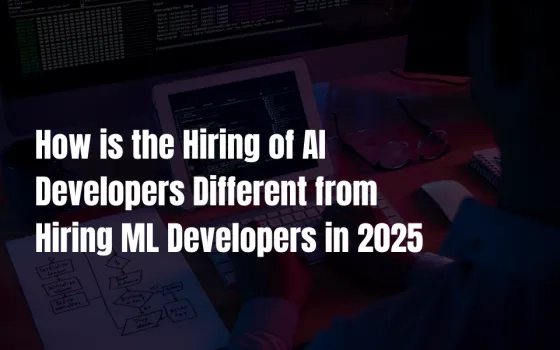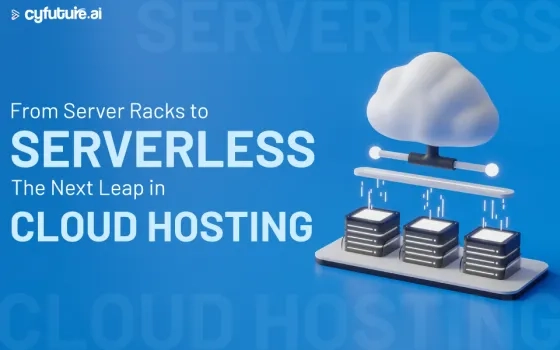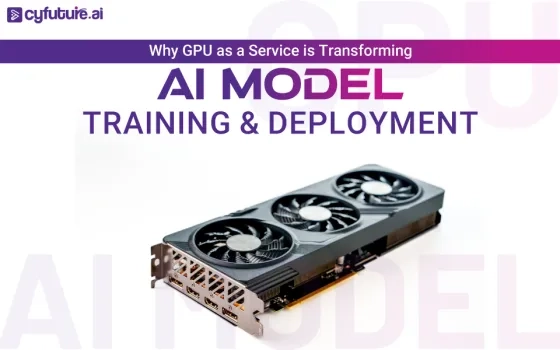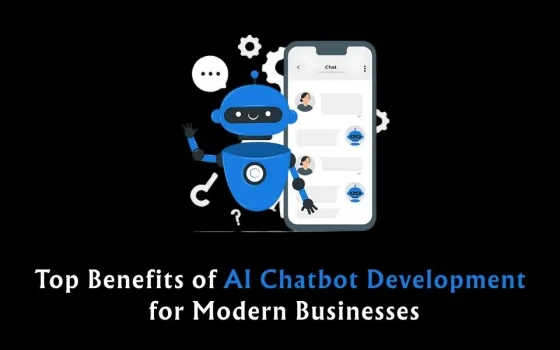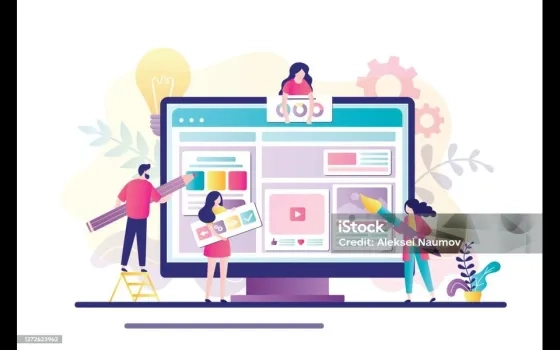Welcome to the Virtual Roundtable on Artificial Intelligence. This series will bring together five subject matter experts from five different verticals to talk about an advanced technology. The series will focus on use cases, applications and case studies in emerging technologies. The experts on this panel are in conversation with Om Routray, Lead, NASSCOM Community.
 Rama C Dash is a Healthcare thought leader with deep expertise on public health and AI aided health-tech systems. He has over 20 years of experience in software solution building, delivery and professional services for international markets and global clientele. Currently Ram leads the Watson Health business unit of India Software Lab, IBM. Additionally, Ram is also responsible for successful implementation and delivery of IBM Watson Health’s human services solutions for customers in Asia Pacific, ANZ and Greater China Group.
Rama C Dash is a Healthcare thought leader with deep expertise on public health and AI aided health-tech systems. He has over 20 years of experience in software solution building, delivery and professional services for international markets and global clientele. Currently Ram leads the Watson Health business unit of India Software Lab, IBM. Additionally, Ram is also responsible for successful implementation and delivery of IBM Watson Health’s human services solutions for customers in Asia Pacific, ANZ and Greater China Group.
 Hari Balaji is the co-founder of Egregore Labs, a Fintech Startup. Hari is an IIT Madras and IIM Ahmedabad alumnus with a decade of experience as a quantitative strategist in front office Capital Markets roles across London, HK & Singapore primarily with Goldman Sachs. Hari ran a bespoke derivative solutions group for GS out of Singapore prior to moving back to India in Jun 2017 to start Egregore Labs.
Hari Balaji is the co-founder of Egregore Labs, a Fintech Startup. Hari is an IIT Madras and IIM Ahmedabad alumnus with a decade of experience as a quantitative strategist in front office Capital Markets roles across London, HK & Singapore primarily with Goldman Sachs. Hari ran a bespoke derivative solutions group for GS out of Singapore prior to moving back to India in Jun 2017 to start Egregore Labs.
 Mayank Vatsa is currently an Associate Professor with the IIIT-Delhi, India and Adjunct Associate Professor at the West Virginia University, USA. He is also the Head for the Infosys Center on Artificial Intelligence at IIIT Delhi. His research has been funded by UIDAI and MeitY, Government of India. He has authored over 200 papers in refereed journals, book chapters, and conferences.
Mayank Vatsa is currently an Associate Professor with the IIIT-Delhi, India and Adjunct Associate Professor at the West Virginia University, USA. He is also the Head for the Infosys Center on Artificial Intelligence at IIIT Delhi. His research has been funded by UIDAI and MeitY, Government of India. He has authored over 200 papers in refereed journals, book chapters, and conferences.
 Ramakrishnan M is the Chief Marketing Officer of Intello Labs. An ex-Consultant (from Accenture), he is focused on building the market voice of Intello Labs and developing their Partnerships & Alliances ecosystem. He has 17+ years of B2B experience. He launched the first suite of Analytics products in Absolutdata. He is a Mechanical Engineer from DCE (Delhi College of Engineering) and MBA from MDI, Gurgaon.
Ramakrishnan M is the Chief Marketing Officer of Intello Labs. An ex-Consultant (from Accenture), he is focused on building the market voice of Intello Labs and developing their Partnerships & Alliances ecosystem. He has 17+ years of B2B experience. He launched the first suite of Analytics products in Absolutdata. He is a Mechanical Engineer from DCE (Delhi College of Engineering) and MBA from MDI, Gurgaon.
 Ankur Dinesh Garg is CEO, Hotify AI and committed to help Enterprises Adopt AI Successfully. Ankur has expertise in – Technology, Business and Marketing he has worked across Digital Publishing, Retail, e-Commerce, BFSI, Media and ITES sector. Ankur is a graduate and masters from IIT Bombay in Mechanical, Design and Automation.
Ankur Dinesh Garg is CEO, Hotify AI and committed to help Enterprises Adopt AI Successfully. Ankur has expertise in – Technology, Business and Marketing he has worked across Digital Publishing, Retail, e-Commerce, BFSI, Media and ITES sector. Ankur is a graduate and masters from IIT Bombay in Mechanical, Design and Automation.
- We can’t really talk about AI without mentioning IBM Watson. So, Rama, let’s start with you. How is IBM Watson using artificial intelligence to improve the healthcare? Also, if you can give us a few other remarkable use cases from the health sector.
Number of ways – Let’s just talk about one specific and compelling scenario…
The accepted model in medicine has been: Controlled trials to guidelines to doctor recommendation.
Now as you can readily see, health information is flowing in unimaginable volumes from different directions – for example via monitoring (IOT) devices (e.g. fit bit), health apps on mobile phones etc. Patients are interacting with each other and doctors via technology and creating massive datasets, which typically forms the healthcare ‘big data’. Patients are increasingly contributing directly to the EHR through bodily parameters, words or biometrics from their devices. Healthcare research is at its peak, which contributes to massive amount of data itself e.g. approximately 44000 oncology research papers alone were published in 2015-16. Healthcare data is exploding and by 2020, it is expected to double up in every couple of years. Healthcare big data is great, but what can we do with it to improve healthcare?
Big data is nothing new, but earlier the healthcare world did not have proven AI capabilities to ingest the unstructured and voluminous data, curate it and put it into a condition where patterns can be recognized and meaningful insights can be derived within a very short period. That is what Watson is able to do – so it is such a great example of what an AI platform can be.
Additionally, through such a platform, knowledge (be it medical or otherwise) which is typically centred in urban centres and in a few countries, is getting democratised. For example: Through Watson for Oncology, an Oncologist in any corner of India will have access to the same knowledge and insights which an Oncologist practising in say, Memorial Sloan Kettering, NY has.
It is this ability to quickly generate actionable insights which are also backed up by evidence is what is going to make Watson or similar platforms to make a huge impact in healthcare – be it cancer treatment, in clinical trials, in genome research or drug discovery.
Use Cases:
a. Life sciences researchers are using IBM Watson for Drug Discovery to make scientific breakthroughs and increase our knowledge of disease – faster than ever before. Watson can accelerate identification of novel drug candidates and novel drug targets by harnessing the potential of big data.
Barrow Neurological Institute applied cognitive computing with IBM’s Watson for Drug Discovery to identify 5 novel RNA binding proteins altered in ALS. From nearly 1,500 candidate proteins, Watson helped predict those most likely to be involved in the disease.
b. Watson For Oncology
Cancer is a complex and sometimes elusive disease, and each person’s unique cancer may present unexpected challenges. For this reason, physicians often seek opinions from other experts to either corroborate a treatment plan or consider a new approach based on the supporting evidence — potentially boosting confidence in their treatment decisions.
In a double-blinded study, the doctors at Manipal Hospitals found that Watson was concordant with the tumour board recommendations in 90 percent of breast cancer cases. The study was presented at the San Antonio Breast Cancer Symposium.
Watson for Oncology demonstrated concordance rates of 96% for lung, 81% for colon and 93% for rectal cancer cases with a multi- disciplinary tumour board in India.
c. One of the largest health plans in UScreated a cognitive call centre using Watson to dramatically enhance the user experience for healthcare providers. By detecting relevant information in natural language, the solution interacts with callers in an easy-to-use format that mimics human conversation.
- Prashant, somewhere in your mission statement, there is a line ‘’we want to predict the future”. Ironically, Richard Thaler won the Nobel this year highlighting irrationality and behavioural economics. How are you using AI to counter that?
While individuals possess and exhibit their own unique irrationality, the future depends on their group behaviour. This is especially true in financial markets, where a collective action by a group can have a meaningful impact in the short-term. In a group, some biases tend to get mitigated while some others are accentuated. Understanding the opinions of a large enough, representative, sample of individuals allows us to predict group behaviour.
Collecting active and passive opinions of individuals at scale is possible today through the growth of social media and digitization. Likewise, advances in AI and big data allows us to manipulate, process and extract predictive insights from these large pools of data.
- Many are optimistic that AI would enable Indian IT to move up from being the BPO hub. First, from the academic standpoint, Mayank, how prepared are we to grab this opportunity? Second, what sort of efforts are being made in research to ensure that we are innovators and not replicators in AI domain?
I would answer this question on each point separately:
1. I would call India as land of opportunities for AI researchers. To establish my statement, I would quote a recent incident. I was at ICCV2017 (International Conference on Computer Vision – one of the big conferences in the area) and on one of the demo booth, I looked at self-driving truck demo video. I was impressed with the video and I asked the representative of that company what he thinks of their truck on Indian roads. This person, who himself was a researcher, said that the technology is not yet matured enough to drive on Indian roads and he recognized the challenges that the technology has to address. Similarly, I can quote a lot of other incidents where we have seen that off-the-shelf AI solutions may not solve India specific problems. So, certainly, there is good scope for Indian IT sector to move up in the ladder.
2. It is interesting to note that many researchers (worldwide) in the area of machine learning, pattern recognition, and artificial intelligence are Indians. Therefore, I strongly believe that India has the talent pool to work on real world problems related to these areas but most of these researchers are not in India. If we talk about preparedness in India, then we may not be well prepared. In general, my observation is that we are still users of AI technology not the creators, barring some exceptions. A simple example is to look at the research papers in top conferences and journals in related areas – you would see majority from US, China and EU countries. While we contribute in 20% of world’s population but we do not contribute 20% in world’s top-tier research publications profile, particularly in AI technologies. I will add another pointer; if we look at the top US universities, most of them have focused Machine Learning and Artificial Intelligence programs to prepare next generation workforce. On the other hand, in India, we can hardly find such focused programs. To the best of my knowledge, we do not have a high quality focused MTech program in Machine Learning or Artificial Intelligence Program which can be compared with CMU’s MS-ML Program.
3. In India, set of focused efforts from government, academics, and industry has to be initiated to push the envelope and take initiatives. The Government should recognize Machine Learning and Artificial Intelligence as next generation technologies and start large dedicated programs to support research and development. Academia should start focused programs which are thorough, rigorous, and industry ready to prepare the workforce. Industry should recognize the talent pool, support academic institutions in setting up strong programs and labs, and support research. Further, industry should setup research facilities in India to conduct ML and AI research on India specific problems. At IIIT-Delhi, we are starting a rigorous and industry focused MTech with specialization in AI in which we are first building breadth wise foundation of AI and ML and then depth wise expertise in sub-areas of AI. We are excited about the proposed program and hoping that other academic institutions will also start such a program.
4. At the end, I would like to emphasize that we have a large talent pool. A concentrated effort in the right direction can lead us among the top players.
- When we talk of advanced technologies, such as AI and blockchain in agritech, our biggest concerns are about feasibility and then scalability. How is Intello Labs using AI and how successful have you been in taking it to the farmers?
Great question, Om. As you are aware we do quality grading of commodities using images and AI.
I think we have clearly crossed the question of feasibility; we have trained our algorithms through thousands of images…Across different categories…Across locations.
We have enough evidence of successfully implementing our solutions across multiple client situations. So the concept-selling is becoming easier now. People see what we have already done, and then question about their own items or their unique challenges.
Coming to your second point…Fortunately for us, what our clients truly like about our solution is the scalability; one can easily install our application on a mobile phone. We work with food retailers and agri-traders who find our mobile-based solutions lot more reliable and scalable than the current manual practices and all the errors and malpractices involved therein.
- Ankur, you are doing something that can be seen as ahead of time. Hotify already offers AI as a product, service and also as a platform. Tell us more about your offerings. Who is your target clientele and when do you think SMEs will be able to afford such advanced technologies?
Yes, we do believe we are ahead of time, not much though. We offer unsupervised intelligence from enterprise data via a black box AI Engine which is like a self-assembling lego box of Deep Tech components. Depending on the data it organises itself into best suited intelligence pipeline and generates hands-free unsupervised intelligence on the other end.
Our targets are enterprises across sectors and markets, but our approach to them is via partner companies with extensive domain expertise, years of experience and strong client relationship but NO or LOW knowledge of AI.
Our offering becomes very valuable to them as it makes them much more competitive and ahead of the curve solutions at a time when their survival is being questioned by AI Technology based startups venturing into their solution domain.
We are scheduled to launch our DIY platform by April 2018 and it shall enable practically anyone to afford sophisticated AI backing their solution and service offering.
Click to read other stories. Share your thoughts and suggestions about the series in the comments section. If you would like us to conduct a roundtable on any new technology, let us know at community@nasscom.in





 Rama C Dash is a Healthcare thought leader with deep expertise on public health and AI aided health-tech systems. He has over 20 years of experience in software solution building, delivery and professional services for international markets and global clientele. Currently Ram leads the Watson Health business unit of India Software Lab, IBM. Additionally, Ram is also responsible for successful implementation and delivery of IBM Watson Health’s human services solutions for customers in Asia Pacific, ANZ and Greater China Group.
Rama C Dash is a Healthcare thought leader with deep expertise on public health and AI aided health-tech systems. He has over 20 years of experience in software solution building, delivery and professional services for international markets and global clientele. Currently Ram leads the Watson Health business unit of India Software Lab, IBM. Additionally, Ram is also responsible for successful implementation and delivery of IBM Watson Health’s human services solutions for customers in Asia Pacific, ANZ and Greater China Group. Hari Balaji is the co-founder of Egregore Labs, a Fintech Startup. Hari is an IIT Madras and IIM Ahmedabad alumnus with a decade of experience as a quantitative strategist in front office Capital Markets roles across London, HK & Singapore primarily with Goldman Sachs. Hari ran a bespoke derivative solutions group for GS out of Singapore prior to moving back to India in Jun 2017 to start Egregore Labs.
Hari Balaji is the co-founder of Egregore Labs, a Fintech Startup. Hari is an IIT Madras and IIM Ahmedabad alumnus with a decade of experience as a quantitative strategist in front office Capital Markets roles across London, HK & Singapore primarily with Goldman Sachs. Hari ran a bespoke derivative solutions group for GS out of Singapore prior to moving back to India in Jun 2017 to start Egregore Labs. Mayank Vatsa is currently an Associate Professor with the IIIT-Delhi, India and Adjunct Associate Professor at the West Virginia University, USA. He is also the Head for the Infosys Center on Artificial Intelligence at IIIT Delhi. His research has been funded by UIDAI and MeitY, Government of India. He has authored over 200 papers in refereed journals, book chapters, and conferences.
Mayank Vatsa is currently an Associate Professor with the IIIT-Delhi, India and Adjunct Associate Professor at the West Virginia University, USA. He is also the Head for the Infosys Center on Artificial Intelligence at IIIT Delhi. His research has been funded by UIDAI and MeitY, Government of India. He has authored over 200 papers in refereed journals, book chapters, and conferences. Ramakrishnan M is the Chief Marketing Officer of Intello Labs. An ex-Consultant (from Accenture), he is focused on building the market voice of Intello Labs and developing their Partnerships & Alliances ecosystem. He has 17+ years of B2B experience. He launched the first suite of Analytics products in Absolutdata. He is a Mechanical Engineer from DCE (Delhi College of Engineering) and MBA from MDI, Gurgaon.
Ramakrishnan M is the Chief Marketing Officer of Intello Labs. An ex-Consultant (from Accenture), he is focused on building the market voice of Intello Labs and developing their Partnerships & Alliances ecosystem. He has 17+ years of B2B experience. He launched the first suite of Analytics products in Absolutdata. He is a Mechanical Engineer from DCE (Delhi College of Engineering) and MBA from MDI, Gurgaon. Ankur Dinesh Garg is CEO, Hotify AI and committed to help Enterprises Adopt AI Successfully. Ankur has expertise in – Technology, Business and Marketing he has worked across Digital Publishing, Retail, e-Commerce, BFSI, Media and ITES sector. Ankur is a graduate and masters from IIT Bombay in Mechanical, Design and Automation.
Ankur Dinesh Garg is CEO, Hotify AI and committed to help Enterprises Adopt AI Successfully. Ankur has expertise in – Technology, Business and Marketing he has worked across Digital Publishing, Retail, e-Commerce, BFSI, Media and ITES sector. Ankur is a graduate and masters from IIT Bombay in Mechanical, Design and Automation.